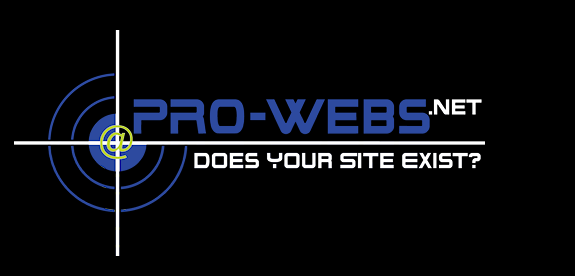 We all worry about the security of our websites, but do you maintain your computer properly to avoid transferring malware and trojans to your website?
We all worry about the security of our websites, but do you maintain your computer properly to avoid transferring malware and trojans to your website?
Fact is, we know most of you do not. We find that overall people do not take the necessary and proper steps to keep their computer and it’s software up to date and patched…. It’s a silent hacker!
Whether you have a static HTML website, blog or shopping cart… You are at risk of hacking your own website and spreading malware to your visitors…. Or worse, compromising their information and security while transacting on your website. Not to mention that most times Google will find the malware/hack before you and tag your listing or remove you from the index!
According to Web security firm McAfee’s second-quarter data, Malware reached its highest levels ever in the first half of 2010. The company found 6 million malicious files in the second quarter, making for a total of 10 million malicious files over the first six months of the year.
So we are going to give some tips to help you keep your computer up to date and your site’s visitors safe. These tips are a culmination of stuff provided to us from our ISP, our webhost and our son Troy the PC guy. We often share this list with customers to help them stay safe and will today share it with all of you. Stopping incidental and accidental malware and viruses from the Internet starts with you.
- Make sure you have good virus software and it’s up to date. Troy recommends AVG for a very powerful and free solution. I personally use McAfee, but it is a paid solution.
- Keep all your software (especially internet related software) such as browsers, plug-ins and add-ons up to date with the latest security patches. Examples are Adobe Reader, Flash, and Java. You can check whether your Firefox plugins are up to date at Mozilla Plugin Check…. And for secure browsing we do recommend Firefox or Chrome as your browser of choice, as Microsoft’s Internet Explorer has been historically subjected to the largest number of security threats.
- Change your passwords regularly and do NOT store them in your browser. Strong passwords of at least 8 characters with numbers, letters and symbols will protect you best. Use a different password in every location.
- Keep your computer’s operating system up to date. Software manufacturers release updates in response to bugs, and other changes… But most importantly in response to security issues discovered after release.
- Do NOT access your website’s administration section from a public or unsecured wireless network… EVER!
- Make sure your home or office’s wireless network is secured and closed to all but you and your staff. Here is an excellent tutorial. Have you heard of the new trendy hacker thing called “Drive By Hacking” or “Wardriving” … Check it out.
- Limit access between computers on your network to all but that which is necessary (file sharing).
- Get a good malware scanner for your computer, something like Malwarebytes is free and excellent.
- Avoid adding unnecessary toolbars and plugins to your browser.
- NEVER click cancel or another selection on popups in websites. It’s usually a trick. So if something pops up that is begging to to click to scan or similar…. Instead of clicking shut your browser down immediately and scan your machine.
- Make certain your computer’s firewall is enabled, up to date and correctly configured at all times.
- Whenever possible access your site’s admin, hosting control panel or FTP in a secured SSL connection to help prevent eavesdropping.
- Know your computer’s normal processes and occasionally monitor what is running in your task manager or similar.
- Only install software, addons and plugins from trusted publishers… Make sure all applications are signed so that you know what they are while monitoring your processes. When installing software always choose advanced or custom install as many are bundled with toolbars and other garbage you will unknowing install.
- NEVER click links in emails or messages that look fishy or are from an unknown sender. If you get a PayPal letter, for example, asking you to update your information, view the link in your mouseover to see if it’s really from PayPal and look at the email address of the sender. When in doubt do not click the link and access the website directly by typing the url you KNOW to be correct in your address bar.
- Never download attachments from senders you do not know… and scan them first even if you know them
- Even if you do not normally visit gambling, p o r n or other known platforms for extreme malware, you should use a rootkit detection tool occasionally. Anti-Rootkit for example is free and does an excellent job.
Now, saying you will do these things is not enough. You have to actually do them. Set your scanners to run daily in your task scheduler, while you are sleeping even. Set your computer’s operating system updates to automatic, and think before you click. These are the things we charge you with to help make the Internet a little safer for all users…. It starts with you and your website, we all share this very important responsibility.
